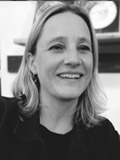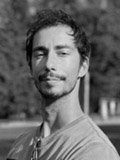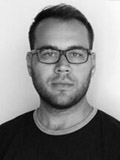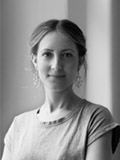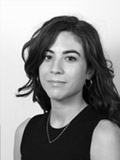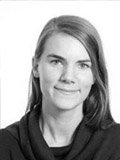ABOUT THE CONSORTIUM
The Consortium consists of the following institutions:
WP 3
WP 0
WP 1
Roskilde University
Kristian Syberg
Associate professor and Head of Section at the Department of Science and Environment. He leads the MarinePlastic II research center and the Center for Interdisciplinary Plastic Research at Roskilde University. Additionally, he is a workstream leader in the Danish national Partnership for Plastics and Textiles in the Circular Economy and co-leads a working group in the Scientists Coalition for an Effective Plastic Treaty. His research spans environmental impacts of plastic pollution, circular economy, citizen science, and science-to-policy initiatives.
Agnete Lunddahl Jensen
As the Center Administrator for the MarinePlastic II project, I facilitate interdisciplinary collaboration, manage project funding, and support strategic initiatives. I serve as a key link between consortium members, ensuring smooth communication and coordination. Additionally, I liaise with external stakeholders and the Velux Foundation to strengthen partnerships and enhance project impact.
If you're interested in learning more about MarinePlastic II or exploring collaboration opportunities, please reach out via the Contact Form on our website. We look forward to connecting.
Annemette Palmqvist
Associate Dean for Education at the Department of Science and Environment and a researcher at the Center for Interdisciplinary Plastic Research. With a background in ecotoxicology, zoophysiology, and population ecology, her recent research focuses on the fate and effects of particulate pollution, including metal nanoparticles and microplastics. She is involved in multiple projects on microplastics, collaborating with academic partners, industry, consultancy, regulatory bodies, and NGOs.
Ellen Palm
Postdoctoral researcher focusing on circular economy and zero-waste hierarchy within the context of the UN plastic treaty negotiations. Her PhD thesis from Lund University examines plastics from a climate perspective, exploring technologies and the role of framings such as expectations, narratives, and imaginaries. She is particularly interested in carbon circularity and carbon capture and utilization technologies.
Kevin Ugwu Hernandez
PhD student in the Department of Science and Environment, Roskilde University. He holds a BSc in Environmental Science and an MSc in Oceanography, focusing on the impacts of human activities on marine ecosystems, particularly microplastics' effects on marine biota. He has worked as research assistant at UPGC and ORU University, where he analyzed microplastics in coastal waters from the Baltic Sea. His studies also explored the ecotoxicological impacts of leachates from microplastics, car tires, and oil on marine plankton, as well as chemical characterization of various matrices using advanced analytical techniques such as GC-HRMS and µFTIR-imaging Spectroscopy. His research interests include emerging pollutants and climate change in marine ecosystems, emphasizing the trophic transfer and ecotoxicological effects of nanoplastics and plastic additives in marine food webs.
WP 2
Aalborg University
Jes Vollertsen
Professor of Environmental Engineering with a PhD related to biological and chemical processes in urban drainage systems. His research focuses on anthropogenic pollution, particularly microplastics across various matrices such as water, wastewater, sludge, sediments, soil, biota, food, and air. He aims to quantify sources and occurrences of environmental microplastics and address mitigation technologies. He has substantial experience leading large projects, including the VELUX MarinePlastic Center and the JPI Oceans FACTS project.
Alvise Vianello
Alvise Vianello is an Associate Professor at the Department of the Built Environment, Aalborg University, Denmark. Holding a PhD in Environmental Engineering and a Master’s degree in Chemical Sciences, his research specializes in analytical chemistry. His technical expertise includes FTIR and Raman micro-spectroscopy, AFM, ICP-OES, and GC-MS. Vianello’s research focuses on the analysis of microplastics across a wide range of environmental matrices, including marine and freshwater systems, urban waters, soil, sediments, biota, food, air samples, and human tissue. He is dedicated to developing and refining analytical methods to enhance the characterization of microplastic occurrence, transport, and fate. His work also investigates innovative mitigation technologies to address environmental plastic pollution. With extensive experience in microplastic science, Vianello has played a key role in managing large-scale projects, including the EU Interreg FanpLESStic-sea, the VELUX MarinePlastic Center, and the JPI Oceans FACTS project.
Laura Simon-Sánchez
Laura Simon-Sánchez is a National Geographic Explorer and a postdoctoral researcher at the Department of the Built Environment, Aalborg University, Denmark. She completed her PhD at the Institute of Environmental Science and Technology (ICTA-UAB) in Barcelona, where she studied the occurrence, methods, and fate of microplastics in transitional systems of the Mediterranean Sea. Her ongoing research at Aalborg University within the AAU-Urban Pollution Group continues to tackle the critical challenges of plastic pollution, combining fieldwork with the development of advanced analytical methods to accurately quantify micro- and nanoplastics in both environmental and human matrices.
Lucian Iordachescu
Lucian Iordachescu is a Postdoctoral researcher at the Department of the Built Environment at Aalborg University, where he also earned his PhD in Environmental Engineering. His PhD research focused on identifying sources of microplastics from urban environments, particularly in wastewater, stormwater, and sewage. Lucian has extensive experience in environmental sampling, sample preparation, and µFT-IR analysis, contributing to the understanding of microplastic pollution in urban areas.
WP 3
WP 1
Technical University of Denmark
Nanna B. Hartmann
Nanna B. Hartmann is an environmental engineer specialised in environmental fate and effects of plastic pollution, including micro- and nanoplastics. She earned her PhD in nanomaterial ecotoxicology from the Technical University of Denmark in 2011. As a professor at DTU Sustain, her research activities revolves around the environmental consequences of plastic pollution, as well as technological solutions to minimise emissions of micro- and nanoplastics into the environment. She has a strong interest in science communication, actively disseminating her research findings to regulators, the media and the general public. Through her efforts, she aims to quality the public discourse, supporting the role of scientific knowledge in policy-making.
Steffen Foss Hansen
Steffen Foss Hansen is an associate professor in regulatory engineering at Department of Environmental and Resource Engineering, Technical University of Denmark. He has a master's degree in Technological and Socio-Economic Planning (Roskilde University, 2005), a master in environmental law (Aarhus University, 2022), a PhD in Regulation of Nanomaterials (DTU, 2009), and a Dr. tech. (DTU, 2018). He conducts research into risk analysis and governance of nanotechnologies and emerging materials and technologies, and the applicability of decision-making tools under scientific uncertainty. Dr. Hansen is an international recognized expert in regulation of emerging technologies and materials and has been a member of several expert groups giving advice to e.g., ECHA, EEA, OECD, the WHO and national EPAs and is on the advisory panel of the Nature Nanotechnology in matters of nanotechnology and society. He is also associate editor of the scientific journals, NanoImpact and Frontiers Regulatory Toxicology and a grant assessor of NANO2021 Innovation projects on advanced materials for the Norwegian Research Council.
Olga Novillo Sanjuan
Olga Novillo Sanjuan is a postdoctoral scientist at DTU Sustain, part of the Danish Technical University (DTU). Her research focuses on the quantification and analysis of micro- and nanoplastic pollution in environmental matrices. She completed her PhD in Biodiversity at the University of Valencia, Spain, where she specialized in studying contaminants in marine wildlife, non-commercial fish species, and their surrounding environment. Her work included research on protected fauna like loggerhead turtles and cetaceans from the Mediterranean Sea, providing baselines for future ecosystem assessments and contaminant circulation.
She has extensive experience both in the laboratory and sampling in the field for different scientific purposes. She has participated in studies conducted aboard both small vessels and larger ships, such as fishing boats and ferries, combining hands-on techniques with advanced laboratory analysis. She has also participated in many science dissemination events for children and for a wider public to raise awareness about environmental pollution and conservation biology. She has also collaborated with local NGOs and with stakeholders in the local community, strengthening ties science, policy-making and literacy. Her aim is to protect the environment and natural heritage through scientific evidence.
Maria Bille Nielsen
Maria Bille Nielsen is a postdoctoral researcher at DTU, specialising in environmental toxicology, risk assessment, and the regulation of advanced materials and plastics. She earned her PhD in the environmental risk assessment and regulation of nanomaterials, gaining substantial expertise in European environmental and chemical regulations. Within MarinePlastic II her research focuses on the intersection of regulations and plastics to enhance environmental protection.
WP 1
Aarhus University
Jakob Strand
Jakob Strand is a senior researcher at the Department of Ecoscience, Aarhus University, specializing in the research and monitoring of plastic pollution in marine environments. His expertise encompasses the sources, distribution, fate and impacts of microplastics as well as larger litter items. The geographical coverage includes both the North Sea, the Baltic Sea and Greenland. He has participated in several national and international research projects and serves on expert scientific panels for marine litter and microplastic monitoring and assessments under organisations such as the UN, EU, OSPAR, HELCOM, and AMAP within the Arctic Council. For more information, click here.
MarinePlastic II - The Danish center for research in marine plastic pollution
The project is supported by
© Copyright. All Rights Reserved.

